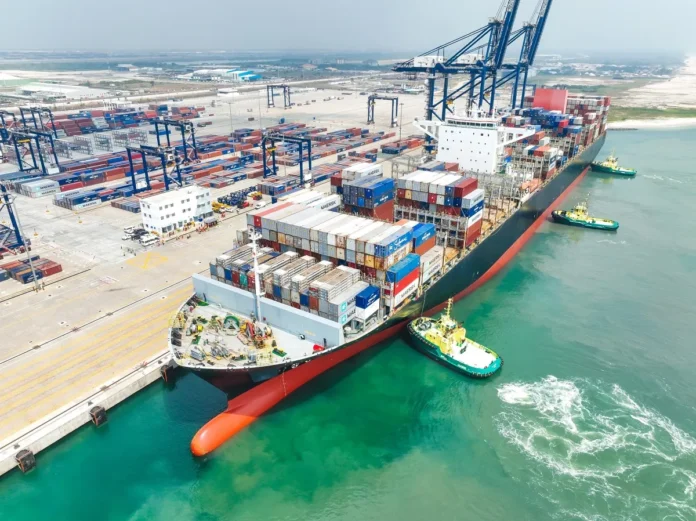Nigeria’s first deep-seaport, Lekki Port, has announced that it has commenced transhipment operations to some Nigerian neighbouring ports like Ghana, Togo and Abidjan in Côte d’Ivoire.
Lekki Port Deputy Chief Operating Officer, Mr. Daniel Odibe, briefing newsmen on Thursday, stated that the port also carried out a trial transhipment within Nigeria to Onne Port just recently.
Odibe said, “We had our first transhipment operations in 2023, which is the first in the Nigerian economy.
“Before now, countries like Togo, Ghana, and Côte d’Ivoire used to be the transhipment hub for Nigerian-bound cargoes. You know what that means for our cargo? They spend more time coming to us. They incur more costs because they are double-handled in those transhipment hubs, all because Nigeria didn’t have a deep-sea port.
“So, commencement of operations at Lekki Port changed the whole transhipment story. The story is in our favour right now. We are now talking about international transhipment. We are now doing international transhipment to other West African countries such as Ghana, Côte d’Ivoire, Abidjan, Togo and Cotonou.
“We hope to expand to the rest of Africa. But most importantly, we hope to expand the local transhipment. Currently, you have ports like Warri, Calabar, Onne, and then we have inland ports like Onitsha and Burutu. Some of these ports, foreign vessels don’t go there because the draft is low. So, the idea here is to have cargoes for those ports. That will open up economic opportunities in those areas.
“We did some trials last year with Onne. It had some challenges, but again, it was an eye-opener and we are looking at restarting that again this year in collaboration with the shipping lines and baggage operators.”
On cargo throughput volume, Odibe explained that cargo volumes are now gradually improving as it processed 222,000 TEUs between January and June 2025.
He said: “Lekki Port currently receives between 10-12 vessels every month. We are picking up because the Naira is gradually stabilising.
“Volumes fell because of Naira depreciation and the removal of fuel subsidy, and this caused a setback in our projection. As of 2023, when we started operations, we did 54,289 TEUs, and as of June of this year, we have done 222,000, and we are projecting 500,000 TEUs.”

